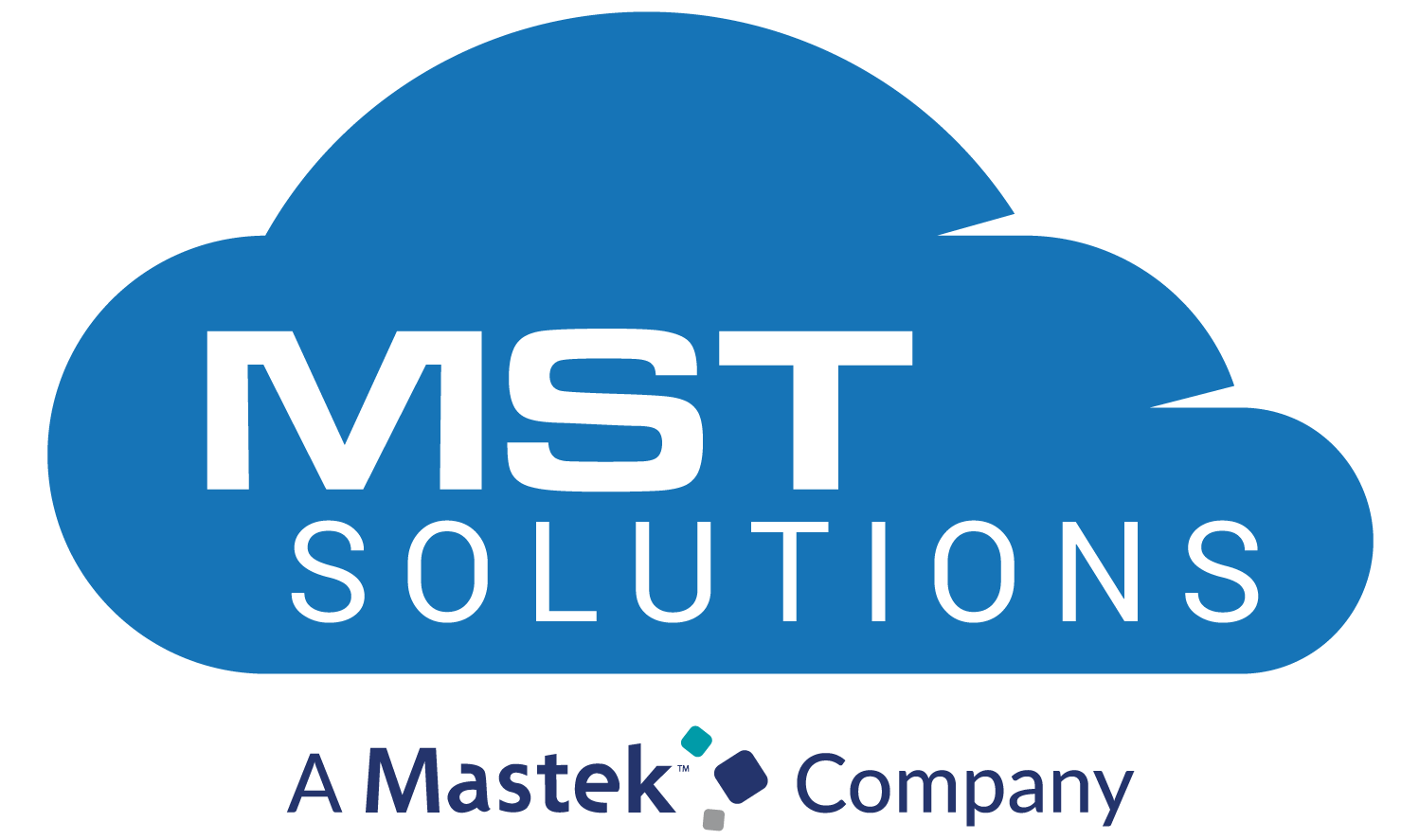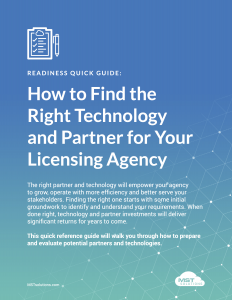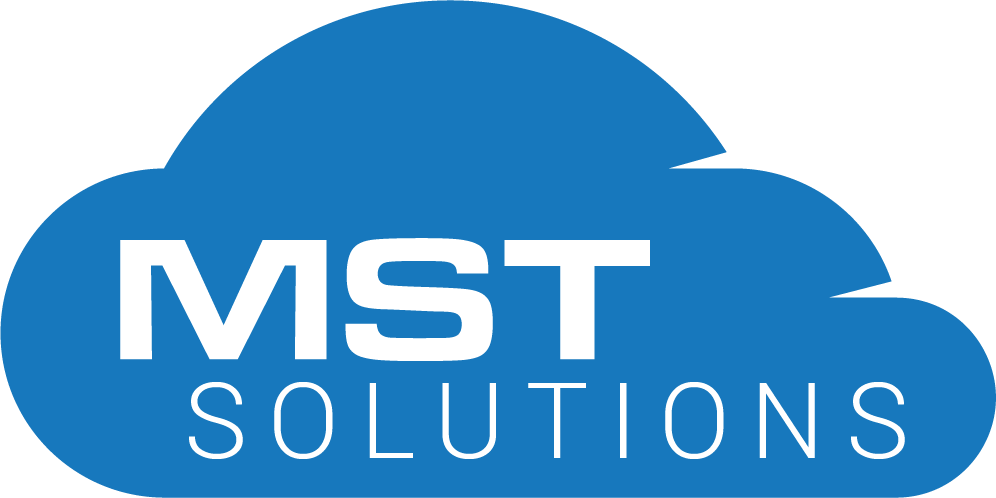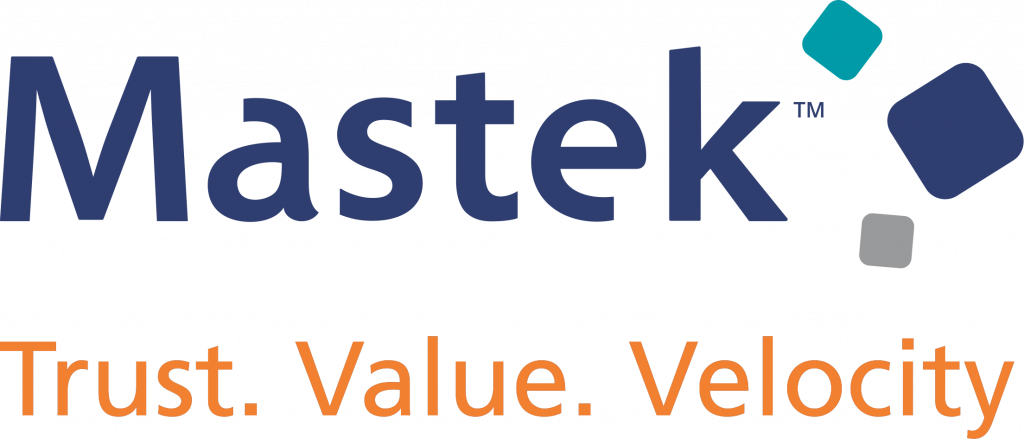If your licensing agency is evaluating solutions to enable automation and delivery of virtual services, it’s natural to prioritize finding the right technology over aligning with the right implementation partner. While aligning with the right technology is important, it’s also the partner that will make or break the investment and determine the outcomes.
And if there’s one thing that COVID-19 exposed, it was the inherent weaknesses and design flaws in the public sector’s digital infrastructure. This has stimulated an increased urgency to find solutions that not only enable automation and streamlined efficiencies, but also empower teams to work in virtual environments and customers to access services entirely online.
Of course, licensing agencies also have to consider other constraints when evaluating solutions: limited time, budget and human capital. So, how do you align with the right tech and partner that will deliver results within these constraints?
Qualifying tech partners
Selecting the right service integrator is one of the most important decisions you’ll make in this process; even as important as the technology that you choose. The provider you work with—their offerings, company size and team capabilities—will determine the success of any new software implementation. That’s why it’s vital to select a tech partner that can scale with you.
The first step is searching for a provider that has the right size and scope of expertise. You need a team capable of not only managing and maintaining your system, but also one that serves as a strategic partner to identify and mitigate risks before they become problems. Systems have to be kept current. Otherwise, employees will create inefficient workarounds when tools or processes no longer meet their needs, and this can eventually lead to an inoperable system.
It is also important to partner with a service provider with industry expertise. Don’t get too preoccupied with the vendor’s list of certifications. Sure, they might carry superlative titles, but are they actually able to deliver a solution and service that matches your organization’s goals, compliance needs and requirements?
Instead, be certain that they have enough people on their bench with deep government-specific knowledge and real-world experience. And if they do, you need to make sure you have regular access to them.
It’s not enough to just take their word for it either. Are they able to offer proven and successful case studies relevant to licensing and, better yet, are they able to connect you with past customers who will vouch for their services? If you’re willing to invest significant dollars into a technology upgrade, potential service providers need to be transparent.
Take time to explore the provider’s methodologies, as well as their company culture and core values. Are their people empowered to do their best work and serve customers’ best interests? How do they demonstrate that they truly embody and live by these core values? Can they provide examples of situations in which their core values guided their decision-making process or actions? At the end of the day, this team will become an extension of your team and should align with or even help elevate your culture.
Finally, evaluate how a potential service provider addresses problems. Even the best-planned technology upgrades will have roadblocks. It’s part of the process. Assess whether their company is known for taking ownership and offering solutions when these issues arise, or if they’re more prone to blaming others. (This would be a great question to ask those aforementioned customer references.)
Deciding on the right technology platform
Another reason why it’s more important to first choose the best implementation partner is that they can then guide you to the right technology. For instance, there are a few common pitfalls when it comes to selecting technology in the licensing sector. One is going the completely custom route. This is expensive, can take a long time to develop, and down the road, it can be a challenge (and expensive) to update, and it makes your team more dependent on the developers who built it. If they leave, so too does that IP.
Another pitfall is opting for the latest-and-greatest, leading-edge technology. Though alluring, it can be risky. Some questions to ask before going down this path:
- Do they have any success stories?
- Can you talk to actual customers who can share their experience?
- Do they have the support in place to address issues?
- Is there enough talent in the marketplace versed in this technology to help your team address issues and updates, or is the technology too new?
The last thing you want is to invest in a novel technology only to find out you don’t have the support infrastructure to keep your system current. Similarly, while it may seem obvious to go with the technology that’s specific to your industry, in some cases this can lead you to a solution that is too small and niche. In some cases, these solutions aren’t nimble enough to quickly meet the evolving needs of agencies, which are ever-changing.
Industry conditions will change. Your customers’ needs will change and so, too, will statutory requirements. Licensing software must be regularly updated to accommodate these shifts. Rather than spending money on a new and expensive system every few years, you’ll realize greater returns if you invest in a fully configurable, dynamic technology like Salesforce—which is constantly evolving and upgrading to meet industry-specific demands.
While solutions like Salesforce work across multiple industries, they’ve done the work to establish domain expertise in those focus industries. And because they are omnipresent, there is a massive pool of talent available to support with the administration. Much of this talent also has specific domain expertise to help guide the strategic buildout of your digital architecture.
Many agencies are experiencing success with a hybrid, configurable model that combines the best of the out-of-the-box and customization worlds. Configurable systems will often start with a pre-built solution specific to your industry, but can be tailored to the unique needs of your agency. This reduces the time to implement, often costs less, and is easy to maintain over the long term.
At the end of the day, licensing technology should enable organizations to take control of the process. It should support agility, and enable leaner teams to accomplish a lot more, without being too reliant on IT departments or expensive outside vendors. The right technology partner will understand this and empower your licensing agency with the tools to succeed—both during and long after implementation.
For more on this, get the Quick Readiness Guide to Finding the Right Technology and Partner for Your Licensing Agency.
How to Find the Right Technology and Partner for Your Licensing Agency
Things to consider to select the right technology and partner








